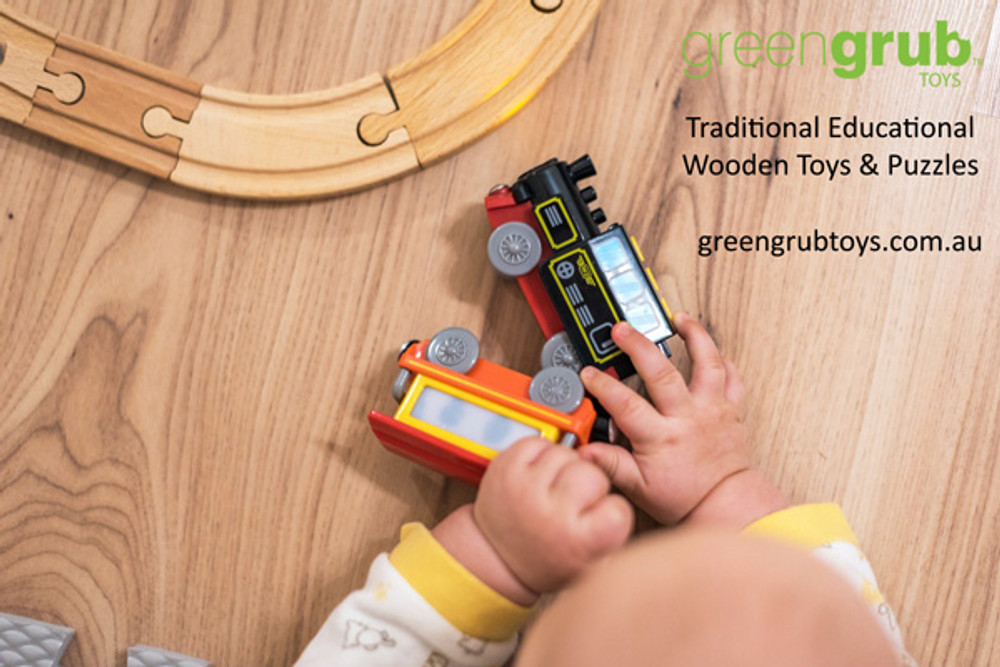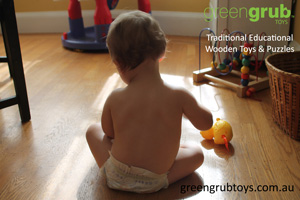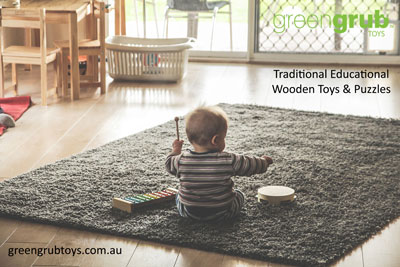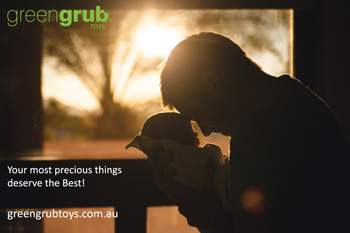
Traditional Wooden Toys vs Electronic Toys - Facts and Myths about Infant Development
Ever wondered whether electronic toys, traditional wooden toys or even books are better for your babies early development? This might help answer the question.
Everyone has an opinion on this one and your's, like mine, might have changed since you had your own children. Originally I was like "no electronic toys" for my kids however becoming a new parent and finding I literally didn't have enough hours in the day I realised electronic toys do have a place and I use them as short term "distractions" for the kids while I get something done.
My experience as a new parent mirrors that of most new parents who struggle to find as much time as they would like to spend with their kids. An article in Science Daily captures it nicely "The reality for many families of young children is that opportunities for direct parent-child play time is limited because of financial, work, and other familial factors. Optimising the quality of limited parent-child play time is important".
I would suggest however, you need to be realistic about the actual educational and learning value of most electronic toys. Do they do what they claim to do?
"Electronic toys for infants that produce lights, words and songs were associated with decreased quantity and quality of language compared to playing with books or traditional toys such as a wooden puzzle, a shape-sorter and a set of rubber blocks" according to an article published online by JAMA Pediatrics via sciencedaily.com.
From another angle; thoughtfulparent.com provide some great detail on the topic of traditional versus electronic baby toys, identifying a study from Northern Arizona University looking at the following:
- 26 child-parent pairs - children were ages 10-16 months old
- the authors compared three types of toys:
- 1. electronic (e.g., baby laptop);
- 2. traditional baby toy (e.g., blocks or sorting toy);
- 3. board books
thoughtfulparent.com go on to say "The researchers fitted the families’ homes with audio recording equipment to monitor how language changed as they interacted with each of the toys.
The results showed some interesting findings: when playing with electronic toys there were fewer adults words, fewer back-and-forth conversation between parent and child and fewer parent responses to the child. As compared to playing with books, children also vocalised less when playing with electronic toys.
When comparing playing with traditional baby toys versus books, it was also found that parents used fewer words with traditional toys than books".
In summary thoughtfulparent.com say, most of the differences in word use were:
- between electronic toys and books,
- followed by electronic toys and traditional baby toys
The above is only 1 study however other evidence is also showing a recent shift away from electronic kids toys back towards traditional toys in some countries. Somehow I think the debate between parents and parenting styles over electronic toys v's wooden toys is sure to continue and answering the question whether electronic toys can be better learning aid for babies than traditional wooden toys will continue.
To sum up; I think each family and child is unique in their own way and a parents instincts usually provide the best guidance on what's working and what's not. Good luck!
Greg - greengrub Founder & Toymaker


